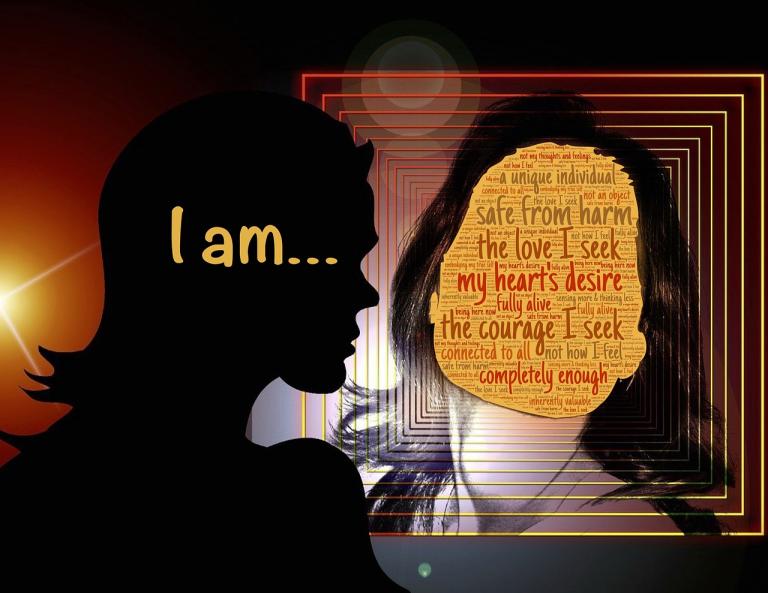
We’ve all come across Christians who believe they, like everyone else, are nothing but filthy worms, wretches who are as repulsive to God as spiders are to most children. Like infamous Calvinist theologian Jonathan Edwards, many folks think of themselves and others as deserving nothing but to be dangled over the fires of hell. Some, like Augustine’s predecessor Tertullian and reformer Martin Luther, even go so far as to suggest such a notion gives God great pleasure, that he, like some sort of sadist, enjoys the fact that countless humans, being the filthy rags that they are, will spend eternity writhing about in pain and agony. Because justice or some shit like that.
Obviously, there are countless problems with such a view. Not only does this cause great psychological harm, but it creates quite a conundrum when it comes to thinking about the Great Commandment to love God and love your neighbor as yourself (Mark 12:30–31).
Think about it: How can you love your neighbor as yourself if you think of yourself as nothing but a filthy rag (or what we today would call a tampon)? If you don’t love yourself, if you don’t have a solid anthropology—one that says you are a beloved child of God, made in a good God’s very image and likeness—can you really love others to the degree that you love yourself? Such a notion seems to make no sense, either theoretically or practically.
Now, there is nothing wrong with talking about ourselves as “fallen,” or, to a degree, “broken.” We’ve all sinned and fall short of the glory of God, just as Paul reminds us. We’ve all done our fair share of wrongdoing. We’ve all been less than loving. We’ve all acted filthy. But here’s the deal: We are not totally depraved in the way those in the Augustinian tradition attempt to convince us. We are not filthy through and through. How can we be when we are all, Christian and non-Christian alike, made in the image and likeness of a good God? As my best friend Michael Machuga recently reminded me, filth is only that which “covers the innate sparkle and shine of the human soul, which is complete and needs no savior—no savior like the one imagined by evangelicals.”
And so, perhaps all we need is a saving from our beliefs that cause harm to ourselves and others. It seems to be more accurate than saying how we need saving from the very God who made us in his image. What kind of God is that, that he would create a bunch of children, call them wretches, and then doom them to the abyss unless they get all their doctrinal Ts crossed and Is dotted? To my mind, it seems then that God wants us all to suffer from Stockholm syndrome: love me back or I’ll either burn you myself or allow you to burn.
How do we fix this then? Well, I think it starts by taking a cue from our Franciscan brothers and sisters: we need a better anthropology. Instead of starting our discussion about what it means to be human with Genesis 3, we should start with Genesis 1. Instead of starting by talking about the Fall, we should start by acknowledging that we are A) divine image-bearers and B) that we are “very good.” This is the context of what it means to be human, at least according to the Bible. So, the passages that say we are but filthy rags, that we are totally corrupt, that we are not good, all need to be read through the context that we, by extension of whose image we are made in, are actually quite good.
Without this view, will we not be grasping at straws when it comes to loving others as ourselves? If we see ourselves as worthless, guilty, shameful, and so on, will we not too often respond to others in a less-than-loving way? If we see each ourselves as wretches, will we not love others wretchedly? Of course we will! Instead, we need to love ourselves as closely to how Jesus loved us. Jesus didn’t see himself as a wretch; he didn’t believe the lie that he, as a true human, lacked anything. Not even close. He knew his true identity, knew that he was in union with the Father, and believed that we too could know this. As he once so aptly stated: “The one who believes in me will also do the works that I do and, in fact, will do greater works than these” (John 14:12).
To that end, when finally acknowledge this, will we not know what it’s supposed to be like in the kingdom of heaven? Is the kingdom of heaven not always at-hand? Indeed, it is. To know that, then, is to first acknowledge that we are all worthy of love, that we all need to love ourselves so that, in turn, we can love others as ourselves. Without one we cannot have the other. Without loving ourselves we cannot love others because to love others is to love the ones they love. We are all just that interconnected, as all the mystics from all the faith traditions rightly acknowledge. We just need to be open to seeing things with new eyes.
Until next time.
Peace and love.













